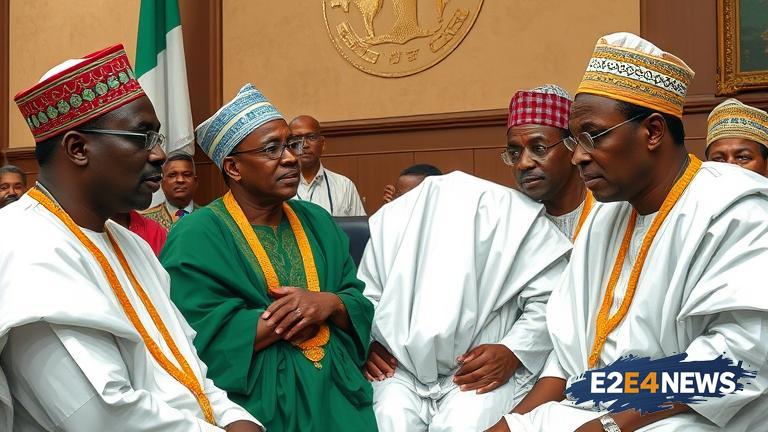The Nigerian Senate has recently introduced several bills aimed at regulating traditional rulers in the country. This move has sparked intense debate among stakeholders, with some arguing that it is a necessary step to ensure accountability and transparency, while others see it as an attempt to undermine the authority of traditional institutions. The bills, which are currently at various stages of consideration, seek to establish a framework for the selection, appointment, and removal of traditional rulers. Proponents of the bills argue that they will help to prevent disputes and controversies that often arise from the selection of traditional rulers, and ensure that only qualified and suitable individuals are appointed to these positions. They also argue that the bills will help to promote good governance and accountability among traditional rulers, who often wield significant influence and power in their communities. However, opponents of the bills argue that they are an attempt to erode the cultural and traditional heritage of Nigeria, and that they will create unnecessary tension and conflict between the government and traditional institutions. They also argue that the bills are unconstitutional, as they infringe on the rights of traditional rulers to govern their territories according to their customs and traditions. The introduction of these bills has also raised questions about the role of traditional rulers in modern governance, and whether they should be subject to the same regulations and oversight as elected officials. Some have argued that traditional rulers should be treated as separate entities, with their own distinct powers and responsibilities, while others see them as an integral part of the governance structure, and therefore subject to the same rules and regulations. The Nigerian Senate has defended the introduction of the bills, stating that they are necessary to ensure that traditional rulers are accountable to their people, and that they are not above the law. They have also argued that the bills will help to promote unity and stability in the country, by preventing disputes and conflicts that often arise from the selection of traditional rulers. However, the bills have been met with resistance from some traditional rulers, who see them as an attempt to undermine their authority and autonomy. They have argued that the bills are a threat to their cultural and traditional heritage, and that they will not be bound by them. The controversy surrounding the bills has also highlighted the complex and often contentious relationship between the government and traditional institutions in Nigeria. While some have argued that the government should respect the autonomy and authority of traditional rulers, others see them as a relic of the past, and argue that they should be subject to the same regulations and oversight as elected officials. The debate surrounding the bills has also raised questions about the future of traditional institutions in Nigeria, and whether they will continue to play a significant role in the country’s governance structure. As the bills make their way through the legislative process, it remains to be seen whether they will be passed into law, and what impact they will have on the traditional institutions in Nigeria. The introduction of the bills has also sparked a wider debate about the role of traditional rulers in African societies, and whether they should be subject to the same regulations and oversight as elected officials. Some have argued that traditional rulers play a vital role in promoting cultural and traditional heritage, and that they should be treated with respect and dignity. Others see them as a hindrance to progress and development, and argue that they should be abolished. The controversy surrounding the bills has also highlighted the need for a nuanced and informed discussion about the role of traditional rulers in modern governance, and the need for a framework that balances their autonomy and authority with the need for accountability and transparency. As the debate continues, it is clear that the introduction of the bills has sparked a wider conversation about the future of traditional institutions in Nigeria, and the role that they will play in the country’s governance structure. The outcome of the debate will have significant implications for the traditional institutions in Nigeria, and will shape the country’s governance structure for generations to come.





